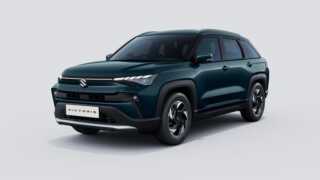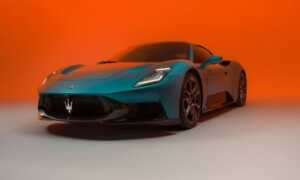Share via: Over the past century, economic power shifted from the US to Europe, then to Japan and the Asian Tigers, before China dominated as the “factory of the world” in recent decades. …Read More India is now the world’s third-largest car market, and component exports touched USD 523 billion in FY25. View Personalised Offers on Check Offers Maruti Suzuki India’s MD and CEO Hisashi Takeuchi believes India’s moment on the global stage has come. Speaking at the Automotive Component Manufacturers Association (ACMA) annual convention, he said the coming decades belong to India, provided policy stability and resilience remain at the centre of its growth story. Takeuchi framed India’s rise in historical context. Over the past century, economic power shifted from the US to Europe, then to Japan and the Asian Tigers, before China dominated as the “factory of the world” in recent decades. Now, he argued, it is India’s turn. Also Read : From Maruti 800 to e-Vitara, Suzuki’s ₹70,000 Cr India plan signals continuity With the world’s largest working-age population, a four-trillion-dollar economy and growing government support, India has the ingredients to emerge as a trusted global workshop. “In this turbulence lies an extraordinary opportunity for India to position itself as a resilient and sustainable manufacturing hub,” he said, pointing to supply chain shocks from the pandemic, the Suez Canal blockage and trade tensions as moments that forced countries to rethink dependence. Policy support and its parallelsDrawing parallels with Japan’s post-war industrial push, Takeuchi credited India’s government for cutting corporate tax, rolling out the Production-Linked Incentive (PLI) scheme, and pursuing initiatives like Make in India. He also noted recent cuts in both direct and indirect taxes and interest rate moves to spur demand. But he stressed the need for stability. “As India aspires to be a global manufacturing hub, it will be important to continue demonstrating policy predictability,” he said. Auto sector as a growth engineThe auto industry, Takeuchi argued, will play a key role in this transformation. India is now the world’s third-largest car market, and component exports touched USD 523 billion in FY25. This figure could more than double by 2030 if the right conditions hold. For Suzuki, India has already become the launch pad for its first global electric model, the e-Vitara, which will be exported to over 100 countries. That decision, he said, reflects growing confidence in India’s role in the global supply chain. Also Read : Nexa turns 10: How Maruti Suzuki built a premium segment to retain customers Still, headwinds remain. Nearly 30 per cent of India’s auto component exports go to the US, where recent tariffs have meant duties of 25 per cent to 50 per cent on shipments. Takeuchi called this a major challenge but noted both governments have signalled willingness to find solutions. A chance to lead, not followFor India, the moment is about more than just growth. “This is our chance to make the country not just a participant, but a leader in the global automobile supply chain,” Takeuchi said. With strong domestic demand, talent and policy backing, he believes the future of manufacturing, and the auto industry in particular, will increasingly have an Indian stamp on it. Get insights into Upcoming Cars In India, Electric Vehicles, Upcoming Bikes in India and cutting-edge technology transforming the automotive landscape. First Published Date: 14 Sept 2025, 08:30 am IST
Source: hindustantimes.com






